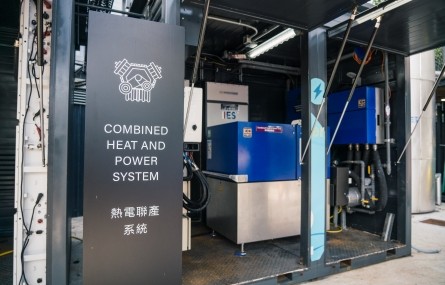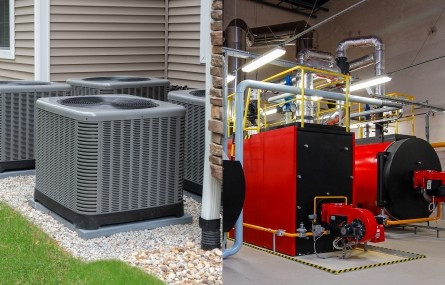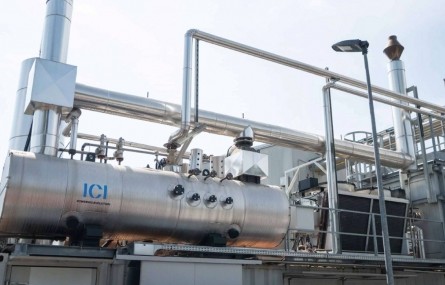Maximizing Efficiency with Heat Pumps: A Guide for Engineers in Hong Kong

Maximizing Efficiency with Heat Pumps: A Guide for Engineers in Hong Kong
Heat pumps have emerged as a key solution for energy-efficient heating and cooling systems, particularly in regions like Hong Kong, where sustainability and decarbonization are top priorities. By transferring heat instead of generating it, heat pumps offer superior energy efficiency compared to traditional HVAC systems, making them ideal for commercial and residential buildings in the city's dense urban environment.
Understanding Heat Pump Operation
Figure 1: Principles of heat pump operations
Source: Heat pump work principle with detailed mechanical drawing outline diagram - VectorMine
Heat pumps operate on the principle of heat transfer using a refrigerant cycle, similar to air conditioners and refrigerators. They extract heat from an external source (air, water, or ground) and amplify it to provide heating. The key components of a heat pump system include:
-
Evaporator: Absorbs heat from the source, such as outdoor ambient air.
-
Compressor: Increases refrigerant pressure and temperature.
-
Condenser: Releases heat to the target space.
-
Expansion Valve: Regulates refrigerant flow and pressure.
With proper engineering, heat pumps can achieve a Coefficient of Performance (COP) exceeding 4.0, meaning they deliver four times the energy consumed.
Strategies for Maximizing Heat Pump Efficiency in Hong Kong
To ensure optimal performance, engineers working in Hong Kong should consider the following factors:
1. Select the Right Heat Pump for the Local Climate and Application
-
Air-Source Heat Pumps (ASHPs): Suitable for Hong Kong’s subtropical climate, providing efficient heating and cooling throughout the year.
-
Water-Source Heat Pumps (WSHPs): Ideal for buildings with access to seawater, cooling towers, or central water-loop systems, commonly found in Hong Kong’s high-rise developments.
2. Optimize System Design for Urban Buildings
-
Proper Sizing: Oversized units lead to short cycling and inefficiency, while undersized units struggle to meet demand.
-
Variable-Speed Compressors: Enhance part-load efficiency and reduce energy consumption, particularly important in fluctuating urban loads.
-
Integrated Controls: Smart thermostats and Building Management Systems (BMS) can optimize performance by adjusting output based on real-time demand.
3. Enhance Heat Exchange Efficiency
-
Improve Heat Exchanger Design: Larger surface areas and enhanced fin designs boost heat transfer efficiency.
-
Use High-Performance Refrigerants: Low-GWP (Global Warming Potential) refrigerants improve thermodynamic efficiency and reduce environmental impact, aligning with Hong Kong’s climate action goals.
-
Maintain Clean Coils and Filters: Regular cleaning prevents airflow restrictions and maintains optimal heat transfer, crucial in Hong Kong’s humid conditions.
4. Leverage Renewable Energy Integration in Hong Kong
-
Pairing heat pumps with combined heat and power systems (CHP) can offset electricity consumption and further reduce carbon footprint in commercial buildings.
-
Heat pumps combined with thermal energy storage allow for demand shifting and peak load reduction, supporting Hong Kong’s push for smart energy solutions.
5. Implement Effective Maintenance Practices
-
Regular Inspections: Check refrigerant levels, pressure, and electrical connections to avoid efficiency losses.
-
Monitor Performance Metrics: Use IoT-based monitoring to track energy consumption, COP, and system health, ensuring long-term reliability.
-
Preventive Maintenance: Addressing minor issues early can extend the lifespan and efficiency of heat pumps, reducing operational costs.
Conclusion
Heat pumps represent a crucial technology in Hong Kong’s transition to sustainable energy solutions. By selecting the appropriate system, optimizing design, and maintaining peak operational efficiency, engineers can maximize performance while reducing energy costs and environmental impact.
IES Group is at the forefront of implementing advanced heat pump solutions, driving efficiency and sustainability in Hong Kong’s built environment.
For tailored heat pump solutions in Hong Kong, contact our engineering team today!



